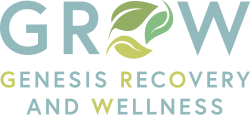Dialectical behavior therapy, or DBT, is a form of psychotherapy used to treat a variety of mental health conditions as well as substance abuse. DBT is different from other forms of psychotherapy because it focuses on validating and accepting feelings instead of avoiding them. A principal goal for clients is to build confidence and develop coping skills to handle stressful situations effectively. At Genesis Recovery and Wellness in Ohio, we recognize the benefits of DBT to help our clients learn how they can live healthy, fulfilling lives in long-term sobriety.
5 Benefits of Dialectical Behavior Therapy
In addiction treatment, DBT treats addiction and relapse as a problem to solve. Therapists help individuals analyze the events that led to substance abuse or relapse and work with them to increase awareness about the negative consequences of substance abuse. There are many benefits to DBT.
1. Identifying Your Triggers and Learning Healthy Coping Mechanisms
A central part of dialectical behavior therapy involves assessing your behaviors and what may have caused your addiction. In doing so, clients can understand their triggers, such as:
- Specific environments
- Relationships
- Stressful situations
- Intense emotions
Understanding your triggers and how to avoid them is crucial for increasing the likelihood of long-term recovery and preventing relapse. Clients also learn and develop healthy ways to cope with triggers and stress, such as relaxation and breathing techniques.
2. Developing Mindfulness Strategies
Mindfulness is being present and aware of ourselves and what we are doing. Using mindfulness techniques can be extremely helpful during and after substance abuse treatment. Understanding what you are feeling and experiencing can help improve your mindset. It can be tough to navigate certain emotions and not let them take control. Mindfulness strategies learned in DBT can help you be aware of these feelings, acknowledge them, but stay in control of yourself and your actions.
3. Learning to Improve and Restore Relationships
Substance abuse can harm and destroy a person’s relationships with their loved ones. Dialectical behavior therapy can help clients with struggles in their interpersonal relationships as they learn and establish healthy relationship behaviors. They also create and learn how to enforce their personal boundaries with others. Clients can restore relationships damaged by past substance abuse by learning to listen and communicate effectively with others.
4. Gaining Emotional Regulation Techniques
During treatment and recovery, clients need to be able to regulate their emotions. Treatment is a complex process and can lead to negative thoughts and emotions. DBT helps clients develop techniques that focus on recognizing, naming, and altering the negative effects of an emotional response. By learning to identify and cope with intense negative emotions, clients can have more positive emotional experiences. The different treatments and therapies people go through during recovery can bring up a lot of intense and sometimes unwanted emotions. However, properly managing these overwhelming emotions can allow clients to heal and live fulfilling and successful, sober lives.
5. Distress Tolerance
Early stages of treatment like detox and withdrawal can be distressing and uncomfortable. DBT can help clients learn how to live with discomfort and feeling out of control. Clients first learn how to accept upsetting emotions and develop skills to endure the stress that in the past would have led to substance abuse. This is a valuable benefit of DBT because, in long-term recovery, clients can implement these techniques during times of stress and hardship.
Learn More at Genesis Recovery and Wellness in Ohio
For those struggling with substance abuse, help is available. In Middleburg, Ohio, Genesis Recovery and Wellness focuses on providing clients with quality care and treatment to help them heal physically, mentally, and emotionally. To learn more about our dialectical behavior therapy and other Ohio-based programs, contact us at 216.331.2998.

